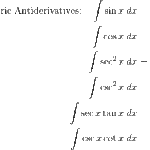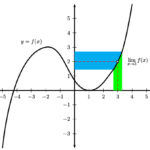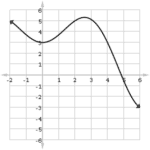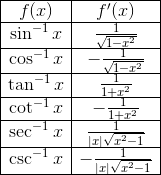The AP Calculus BC test is one of two standardized test in calculus. It is more comprehensive than the AP Calculus AB test, hence could allow you to receive more credits than the AB would entitle you to. In fact, a high enough score on the AP Calculus BC test may count as two full semesters of college calculus credit.
How Many Credits Could I Earn?
Depending on the school, a score of 4 or 5 could translate to 6-10 credits. This is the equivalent of having taken both Calculus I and II in college. However every school is different, so check what their AP policies are before making any decisions.
Some schools may look at your AB subscore, which measures how well you did on just those problems having to do with Calculus AB. If your AB subscore is decent, then you may earn credits for one semester of calculus even if you didn’t do so well on the BC test as a whole.

What is the Format of the Exam?
The AP Calculus BC test has the same layout as the AB exam. It consists of two main sections, multiple choice and free response. In turn, each section has two parts, one that permits a graphing calculator and one that does not.
| Section / Part | Type of questions | Number of questions | Time Limit | Calculator permitted? |
|---|---|---|---|---|
| IA | Multiple Choice | 30 | 60 minutes | No |
| IB | Multiple Choice | 15 | 45 minutes | Yes |
| IIA | Free Response | 2 | 30 minutes | Yes |
| IIB | Free Response | 4 | 60 minutes | No |
The multiple choice questions show a problem or ask a question and then give four choices to pick from. There is no “None of the Above,” so you know that the correct choice must be in the list somewhere.
A typical free response question describes a scenario or problem and then asks 3-4 questions about it. You must write out all of your work. In fact, the graders are looking for a logical sequence of mathematical steps leading to a correct answer. If you use calculator features to speed your work, then indicate what you did. Simply writing a correct final answer may not receive credit at all.
Topics on the AP Calculus BC Test
Every topic that is covered on the AB test will also be covered on the BC test, but in more depth. For example, you will need to know about more advanced antidifferentiation methods such as integration by parts. In addition, the BC test covers parametric and vector functions, and sequences and series.
The material on the exam falls into four main categories:
- Limits and Continuity
- Differential Calculus
- Integral Calculus
- Sequences and Series
Let’s explore the material that goes beyond what’s on the AB exam. For a list of AB topics check out What Topics are on the AP Calculus AB Exam?.
Derivatives
- Derivatives of vector-valued functions, parametric functions, and functions expressed in polar coordinates.
- Analysis of polar graphs using derivatives.
- Velocity, speed, and acceleration for vector-valued or parametric functions.
- Euler’s method.
Integrals
- Improper integrals.
- Integration by parts and the method of partial fractions.
- Displacement, distance, and position of a particle moving according to a vector-valued or parametric function.
- Areas bounded by polar curves.
- Length of a parametric curve.
- Logistic growth model.
Sequences and Series
- Covergence and divergence.
- Common series such as the p-series, geometric series, and harmonic series.
- Absolute versus conditional convergence.
- Taylor polynomials and approximation.
- Lagrange error bound.
- Taylor series and power series.
- Radius and interval of convergence.





